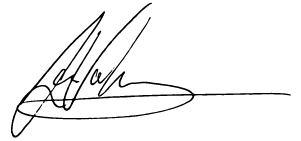It’s time we dealt with some more of your unanswered questions about bitcoin.
As a reminder, we asked you to email in your questions for Nigel Farage to ask our cryptocurrency expert Sam Volkering.
You can find round one of their Q&A here.
But there were plenty of questions we couldn’t get to. So here’s another round of your questions and Sam Volkering’s answers…
Bitcoin is something created within a computer logarithm.
As far as I am aware it being something on which no copyright exists.
What is there to prevent a clever computer programmer replicating the system in blockchain with all the facilities of Bitcoin, such as mining, limited number of coin that can be created, complete with the halving process and calling it Citcoin and so on through the alphabet.
It would be very much appreciated as despite several requests to various Bitcoin protagonists no one has ever responded.
Kind regards
E.L.
You’re absolutely right about this. Anyone can take bitcoin’s code, copy it and launch another version of it. In fact, you’ll find that several crypto are based off bitcoin already. Litecoin, for example, is originally a copy of bitcoin.
What happens is they often believe there are flaws or faults with bitcoin’s design and look to use it as a foundation to then build off. We also see this with “forks” off bitcoin’s blockchain which go in a different direction in development and application with the view that one day they will be as useful as the original bitcoin. You see this with other “bitcoin” like Bitcoin Cash, or Bitcoin SV.
This is the advantage of open source code. Anyone can do what they want with it. The thing that’s hard to replicate or develop is the adoption and acceptance of these copies or alternatives.
If the wider crypto population were to consider bitcoin as an inferior money and switch to Bitcoin Cash, then we may very well see that become a more dominant asset. This is no difference to confidence and support of fiat currency. Ultimately all money and stores of value have an inherent belief system backing them – without the belief and confidence in those currencies or assets (crypto or non-crypto) then the monetary system falls down.
Are all the cryptos that I have currently stored on the exchanges linked to my ID, I’m assuming so? Therefore, when I move these to a hard wallet (i.e. my Nano S Ledger) or elsewhere, will they still be linked to my ID, or does that link cease once I remove them from the exchange??
Typically, yes, if you’ve had to register details with exchanges which most now require to satisfy “Know Your Customer” and anti-money laundering and counter terrorism funding regulations then your crypto will be linked to your ID.
Moving them off an exchange will leave a trail on the relevant blockchain to your hardware device wallet. If then the exchange were in some way compelled to reveal your ID and wallets, then you could be linked to the hardware wallet as well and all transactions in and out of that.
This is why when I talk about anonymity, there’s no such thing as absolute anonymity in crypto. It’s partial, and it’s difficult to link people to wallets, in general, but it is possible if it was needed by (typically) authorities, for example.
Although I have not even been into a branch for many years, I have a couple of friends who happen to use the High Street branch occasionally. They have gone in there to organise a transfer of amounts of their money to other bank accounts, or simply to pay for something somewhere by transfer.
On every occasion they have been approached by an in-branch employee, whilst queuing up, who’s job appears to be to ask them what they are doing and why they intend to do with the money prior to them actually doing it. I find this very intrusive and nosey on the bank’s behalf, but do they have any rights to do this? Can they stop customers from withdrawing cash?
As an aside to the branch withdrawal issue; they have also asked, on each occasion, whether a transfer is being directed to make a purchase of Bitcoin which is also followed up by a story from the bank employee as to how Bitcoin is a dangerous scam. Effectively they are discouraging customers from investing in Bitcoin whilst trashing it as a massive fraudulent scam.
By the way, I love what you and Nigel are doing. It is just what I have been looking for; honesty and straight talking.
I am currently reading through all the emails you have sent me, plus the reports, so I have a lot to read about. Thankyou.
Best Regards,
K.T.
As far as I know, the banks can’t stop you withdrawing your cash unless, I believe, they suspect its part of unlawful activity (such as money laundering). This is the power of centralised control within banks – you think you’re completely free to do what you want with your funds, but you’re not.
The control institutions have over what supposedly “free” people can or can’t do with their money is outrageous. This is why crypto, to me at least, has such immense power – it doesn’t stop you from doing anything you choose to do. The power and responsibility for your actions starts and stops with you and you alone.
Hi Nigel / Nick
I watched your video on questions about Bitcoin and I’m still a bit confused. I think the question I wanted to ask was:
Are there a finite number of Bitcoin or is it a case that there exists 5000 Bitcoin but PF wants to buy one so there are now 5001, quick grab his money.
If there are a finite number of Bitcoin, what is that number?
This all seems to be a giant scam to me. So for that reason I’m out.
Thanks
P.
There is a finite amount of bitcoin. The number is 20,999,999.9999 (reoccurring). In short, there will never be more than 21 million. The way bitcoin’s underlying blockchain technology works is that, to verify transactions that occur in the network, bitcoin “miners” participate in the verification process, which adds “blocks” to the blockchain containing all the data about those transactions.
As a reward for their efforts (as there’s a time and energy cost to being a miner) they are rewarded with bitcoin if they successfully mine a block, beating all other miners trying to do the same thing. This economic incentive is a core part of bitcoin’s design.
Hence these block rewards are the only way bitcoin enters circulation. And due to the design of bitcoin’s code, the difficulty in solving the algorithm to mine a block and the speed in which blocks are mined (and rewards paid) it’s not expected that all bitcoin will enter circulation until around the year 2140.
Hence if someone wants to buy a bitcoin, a new one isn’t just created for them. They have to buy one from someone in the network that is happy to sell one. That might be a miner that’s received bitcoin rewards for mining, it might be another person, it might be a business, it could be anyone. But it’s a pure market of buyers and sellers and velocity of bitcoin that exists in the network.
With some 2000 crypto currencies, how do you know which ones to invest in?
C.M.
There’s actually somewhere in excess of 6,000 cryptocurrencies – it’s really an untold number as data aggregation sites like CoinGecko, for instance, don’t list all crypto that are in existence.
How to know which to invest in is really hard. My methodology is based on over a decade of experience, trying to dig into the underlying values of these crypto networks in a similar way in which I’d approach analysing a stock. A lot of the crypto out there are really like start-ups – a very good parallel is the explosion of application (App) start-ups that we saw in the 2010s as smartphone started to really explode in use.
Hence these crypto “start-ups” are best approached by looking at what they’re trying to do, how they’re going to do it, who’s doing it, where will they generate value, revenues (crypto or fiat revenues) and what is the potential of the market they’re trying to step into.
There are, however, a lot of what you’d call “layer 1” or foundation crypto networks. They’re more like the underlying protocols of something like the internet, or energy networks. They’re a lot harder to value, most of them are widely distributed and decentralised – some even with unknown developers.
These you need to take a far more qualitative approach to, and figure out again, the use case, adoption, who and how will people, organisations, other crypto “plug into” these networks, and what the economic incentives and principles are behind it. Also, what’s the network effect in play? How wide are they distributed, how much adoption do they have and how are they or can they scale en masse?
In short, crypto is as diverse and widespread as the rest of the world and it just takes time, a lot of time, an understanding of these markets and how they work to filter the good from the bad and the indifferent. And even then, you never get them all right, but when you do, there’s quite incredible explosive potential which typically covers the ones you get wrong!
Hi
Thanks for the interesting articles.
My question is how and where the Bitcoin data/coding for and verification of the system is stored and operated?
Are there IT staff looking after any ‘servers’ for example?
Who would update or improve the system as it evolves? There must surely be actual people involved – and some sort of office/HQ?
Thanks & regards,
D.L.
No there’s no centralised server. The data exists with all the nodes, all the miners that exist on the network. This is the power of a decentralised network. There is no single point of failure and no requirement for a single team of IT staff to maintain its operation.
Should one of the nodes fail, or try to push through false transactions, the rest of the network in verifying this, will detect it, and kick it off. This also is a fundamental design of how bitcoin blocks are verified and added to its blockchain. This adds incredible security and transparency.
The key is widespread decentralisation and distribution. Without that, the network is next to worthless, but the bigger that network effect gets, that’s where the real value starts to really ramp up.
This is why when we talk about looking at how you value some of these networks, their network effect (how they’re distributed and decentralised and at what scale) is so important.
Thank you both for initiating the conversation with Sam Volkering.
If you make another video Q&A could you please put this to him: Do any of the technologies underlying the cryptocurrencies (blockchain, etc.) have any application to the task of ‘decentralising the internet’?
Many thanks,
Alex
Yes, but the real question here is decentralising data and information. The underlying protocols of the “internet” aren’t really the problem with the internet. They work fantastically well. The problem of the internet is how data is created, transacted and importantly who has access and ownership over that data.
In that sense, yes, there are a number of crypto technologies that are trying to shift that balance of power of data creation and ownership back to the individual, you, so that you have power and control over your data in an easier way. Then, if you choose to monetise that data, it’s you that benefits from it, not some giant data-hoarding marketing and advertising “social media” business.
I believe this issue around data, information, privacy and the ownership of it, is one of the most important issues of our lifetime and we’ll see significant developments from the crypto community which is looking at and ultimately solving this issue. It’s one of the things that actually makes me really excited about the future that crypto can help usher in.
Best wishes,

Sam Volkering
Editor, Frontier Tech Investor




